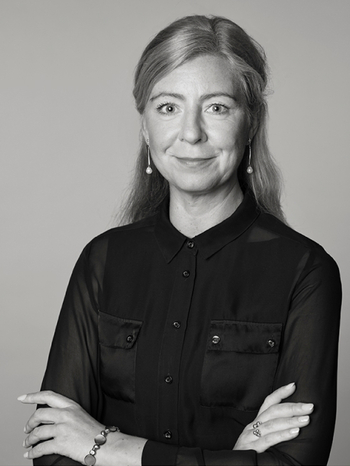Isaac (Isaack) Luttichuys
Portrait of a young man with gloves
Signed Luttichuys Fecit and dated Anno. 1661. Canvas 93,5 x 72 cm.
Provenance
Gösta Stenmans collection Stockholm/Helsinki
His Sale, Bukowski Auktioner, auction 271, Sep 25, 1929, lot 42, ill pl 12.
Bukowski Konsthandel, Stockholm.
Private Collection, Stockholm.
Literature
Wilhelm Reinhold Valentiner, "Isaac Luttichuys, A little Known Dutch Portrait Painter", in: The Art Quarterly I, Nr 3, (Summer 1938), p 155, 178, no 22, ill 3 p 153.
León Krempel, "Studien zu den datierten Gemälden des Nicolaes Maes (1634-1693), 2000, p 112, 134, Anm 15, ill 448.
Bernd Ebert, "Simon und Isaack Luttichuys - Monographie mit kritischem Werkverzeichnis", 2009, ill Is.A90, p 582-583. ("Dreiviertelfigur eines jungen Mannes mit Handschuhen, 1661")
More information
The fashionable portrait, dated in 1661, is undoubtedly a commissioned work and the painter has masterly captured the light reflected in the skin and eyes of the young gentleman. With an exceptional brilliance, the artist Isaack Luttichuys has immortalized the young man in the portrait, dressed in the latest fashion. The extravagant costume with trimmings around the buttons, brussels lace in the shirt, padded hose and elegant gloves in soft leather suggest that the young man is likely a nobleman. The painting is a good example of the idealized portrait around the middle of the seventeenth century.
The painter Isaack Luttichuys was the son of Dutch parents and born in London in 1616 but moved at a young age to Amsterdam. He began his career as a still life painter working in the studio of his elder brother Simon Luttichuys but soon turned to portraiture, developing a style influenced by Van Dyck and, after 1638 on settling in Amsterdam, by the portraits of Bartholomeus van der Helst.
We have some knowledge about Isaack Luttichuys life and background. This is due to the extensive research done by Bernd Ebert. His monographie of Simon and Isaack Luttichuys was published in 2009 and gives us a greater understanding of the time in which Luttichuys lived and worked and even sheds light onto those who purchased his paintings. Isaack Luttichuys married and had three children and eventually died in Amsterdam in 1673.
The so-called Dutch Golden Age is well documented and the demand for art increased enormously during this era of prosperity for the rich merchants. Now it was not only the nobility or the church that were amongst the prospective clients but more and more wealthy merchants in the cities fuelled the demand for still lives, genre pictures , landscapes and portraits. It was a time and place where artists such as Rembrandt, Hals and Vermeer were active and created countless masterpieces for posterity. The art in 1600`s in Holland came about, because of the convergence of rising a flourishing economy, an artistically rich period and the fact that several workshops were supported by wealthy patrons.
Many Dutch and Flemish painters also moved to England; Van Dyck, Mytens, Gheeraerts amongst others and it was not uncommon for artists to travel around the courts of Europe. Isaack Luttichuys paintings are very representative of the time and he depicted very influential people. Among his rich portrait gallery are wealthy merchants, doctors, scientists and members of the nobility.



































